3 Reasons to Dig, Divide, and Share your Plants
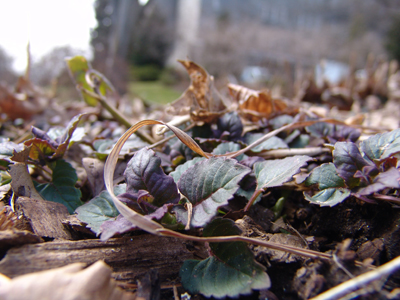 The weather has finally broken and green shoots are pushing up everywhere. Spring is great time to dig, divide, and share your plants. But why go through that effort when the plants are clearly happy where they are?
The weather has finally broken and green shoots are pushing up everywhere. Spring is great time to dig, divide, and share your plants. But why go through that effort when the plants are clearly happy where they are?
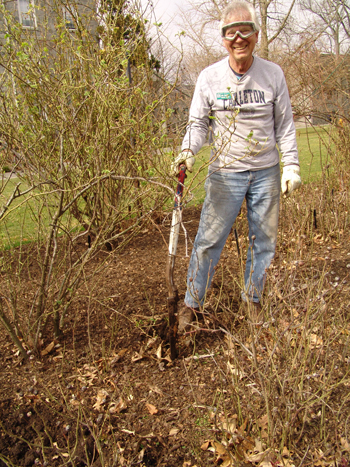
Dig and dividing in the Dean Bond Rose Garden to reinvigorate the older speciemens. photo credit: R. Robert
- To reinvigorate your perennials. Over the years, perennials can begin to produce fewer flowers or develop a “sickly zone” in the center of the plant. Dividing the plants allows for new growth and vigor resulting in improved foliage display and flowering.
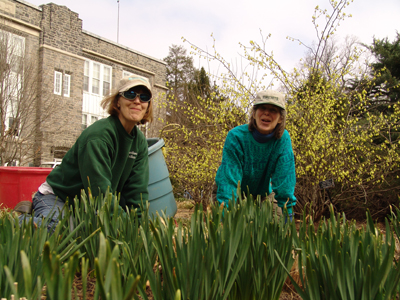
Gardeners and volunteers dig and divide Liriope "taking over" the John W. Nason Garden. photo credit: R. Robert
2. To stop the take over! Some perennials are so happy in their location they begin to take over your entire garden. Dividing allows you to control the plant’s growth and make room for other less aggressive plants to compliment your happy camper.
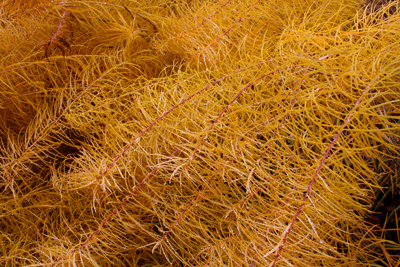
Amsonia is a wonderful plant often shared at the Members Plant Exchange and Sale. photo credit: D. Mattis
3. To share with friends. Gardening friends can be one of the best sources for interesting plant material. Digging and dividing your star performers allows others to appreciate their superstar performances. Your friends will probably give you some winners in return as well.
Digging and dividing allows you maintain the health of your garden and its plants. Great friendships can also be made through the sharing of a plant. Come share your garden superstars as well as acquire some new ones at the Members Plant Exchange and Sale (MPE) on Saturday, May 10. Follow MPE on facebook to learn some dividing techniques.





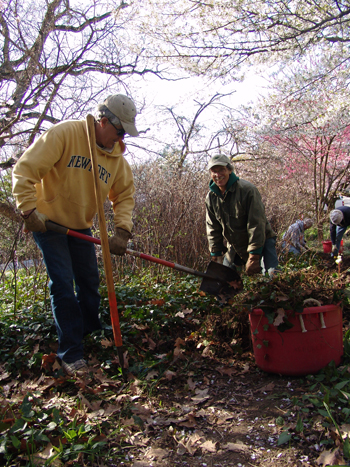
Wayne Tyson
Posted at 19:29h, 11 December4. To suppress industrial plant-factories and be economically and socially integrated–that is, to have true integrity.
My grandmother didn’t think of herself as being a master gardener, but she knew how to propagate lightly upon the land. She would not now recognize the land where she took me by the hand through the fields and wild, wild woods (all of which have been replaced by devil-grass and oil and gas). Her people, the Cherokee, also walked lightly on the land, even on the Trail of Tears . . .